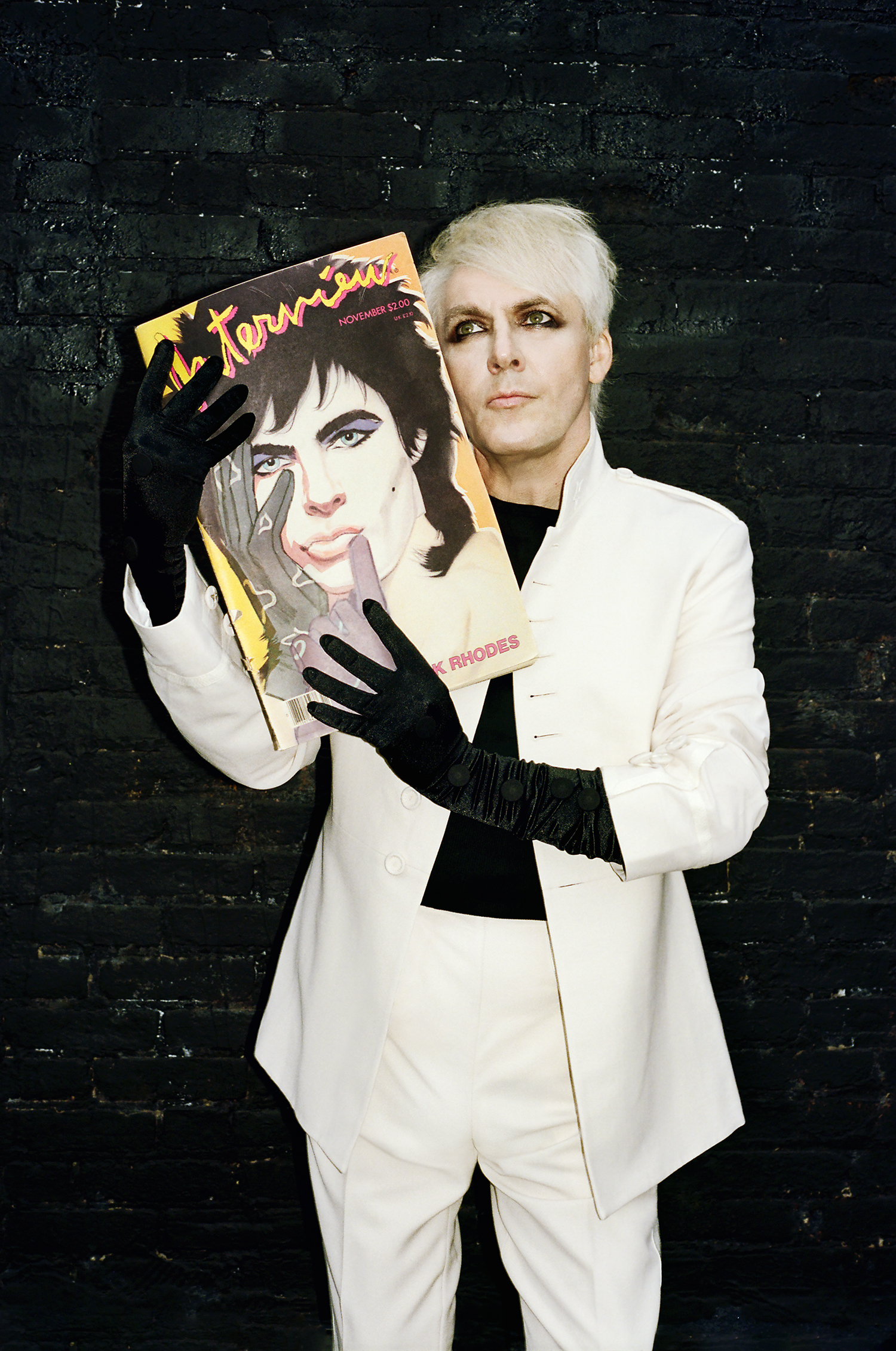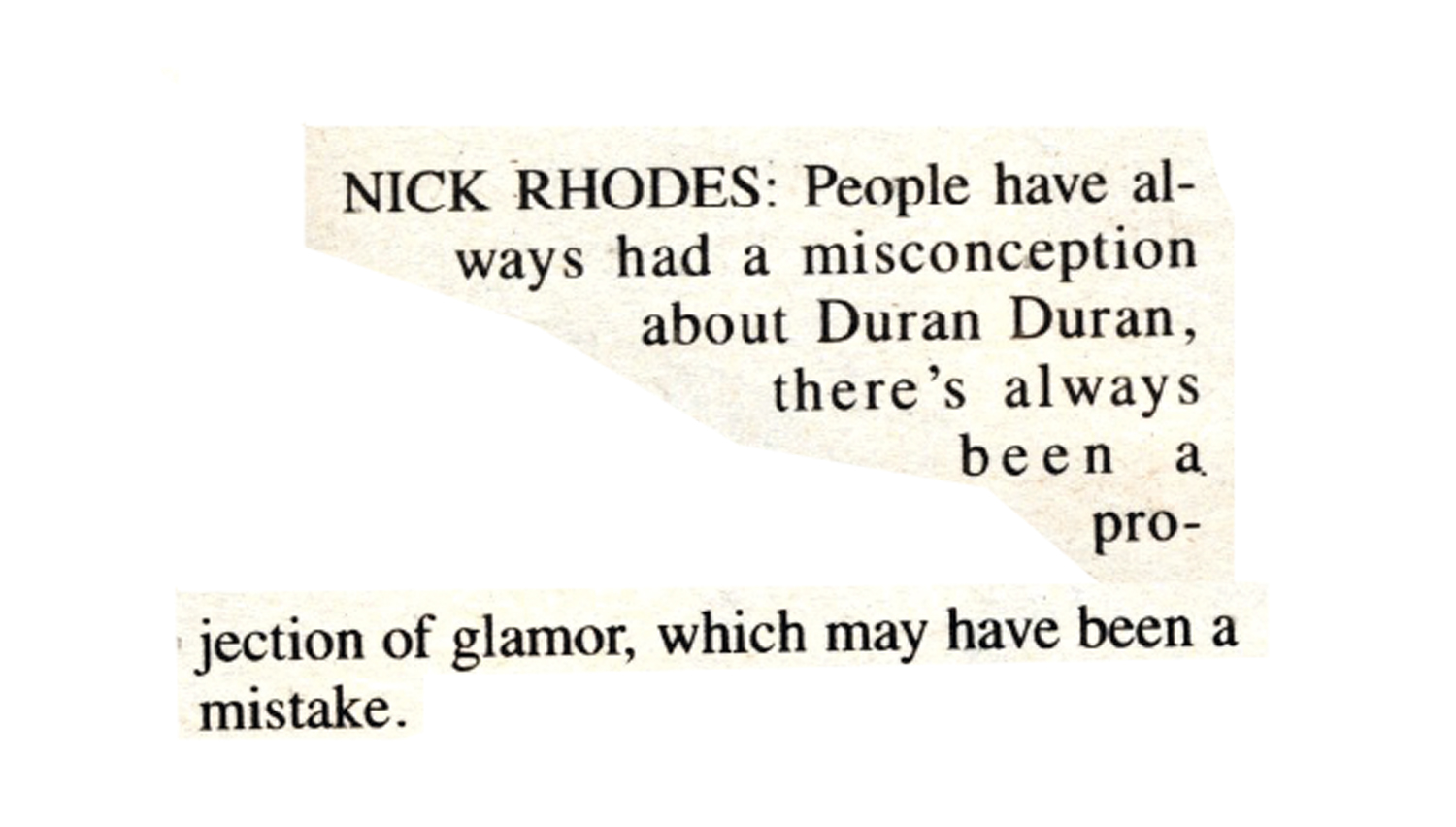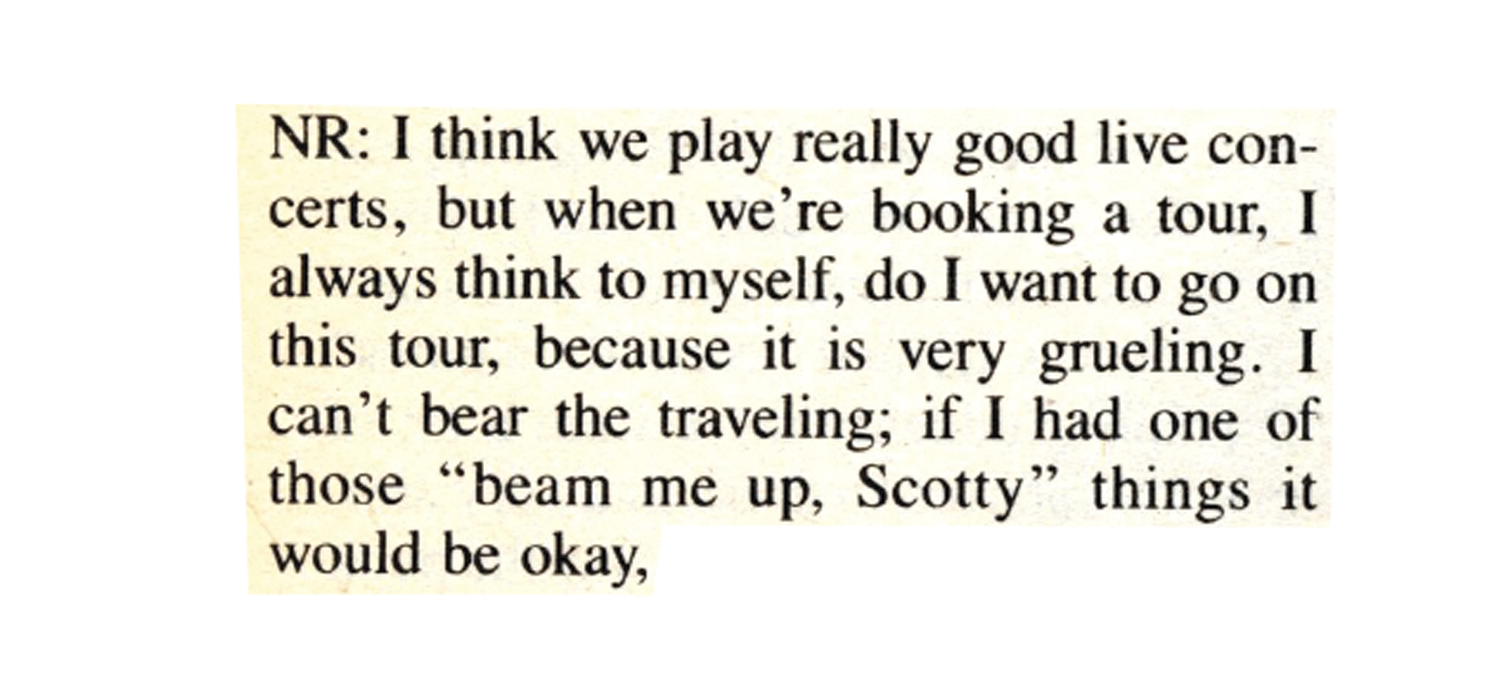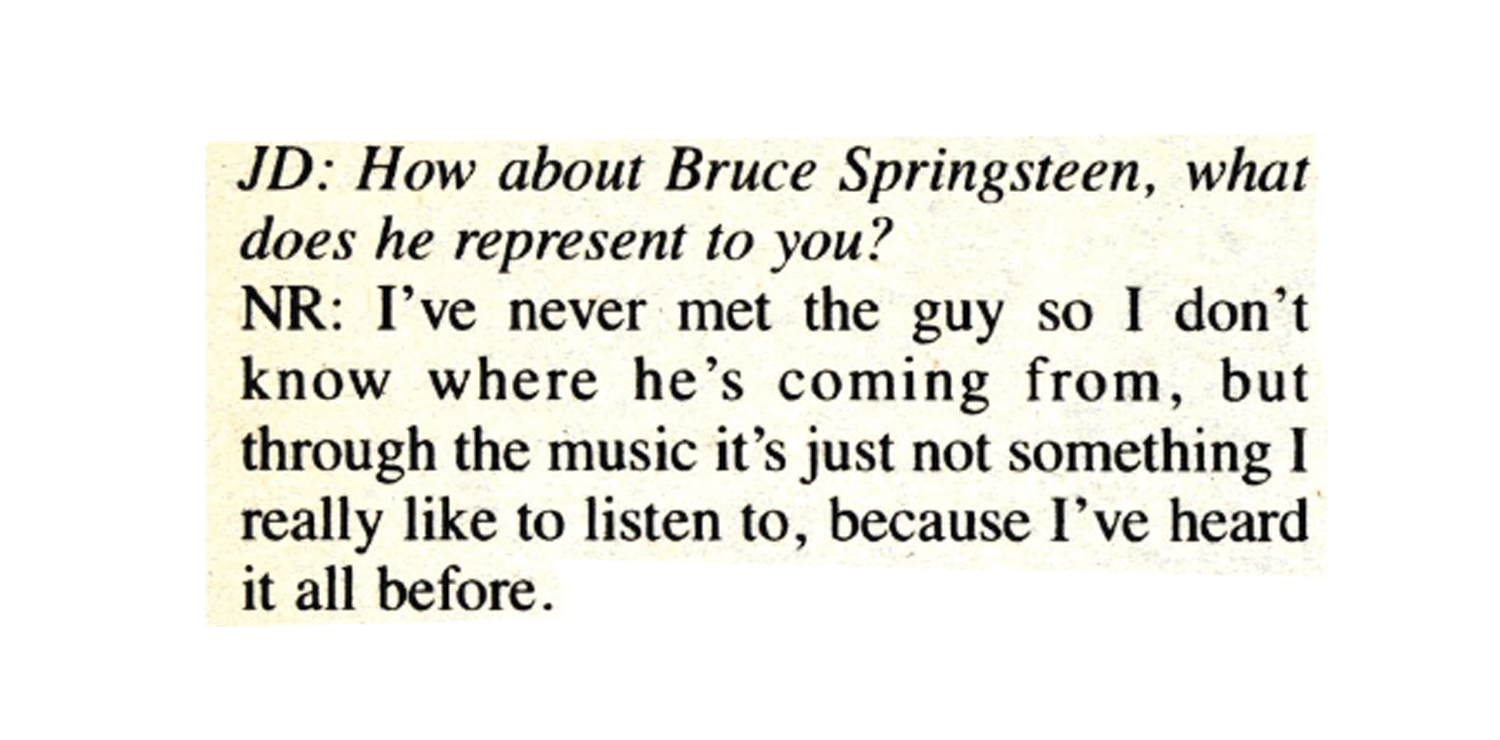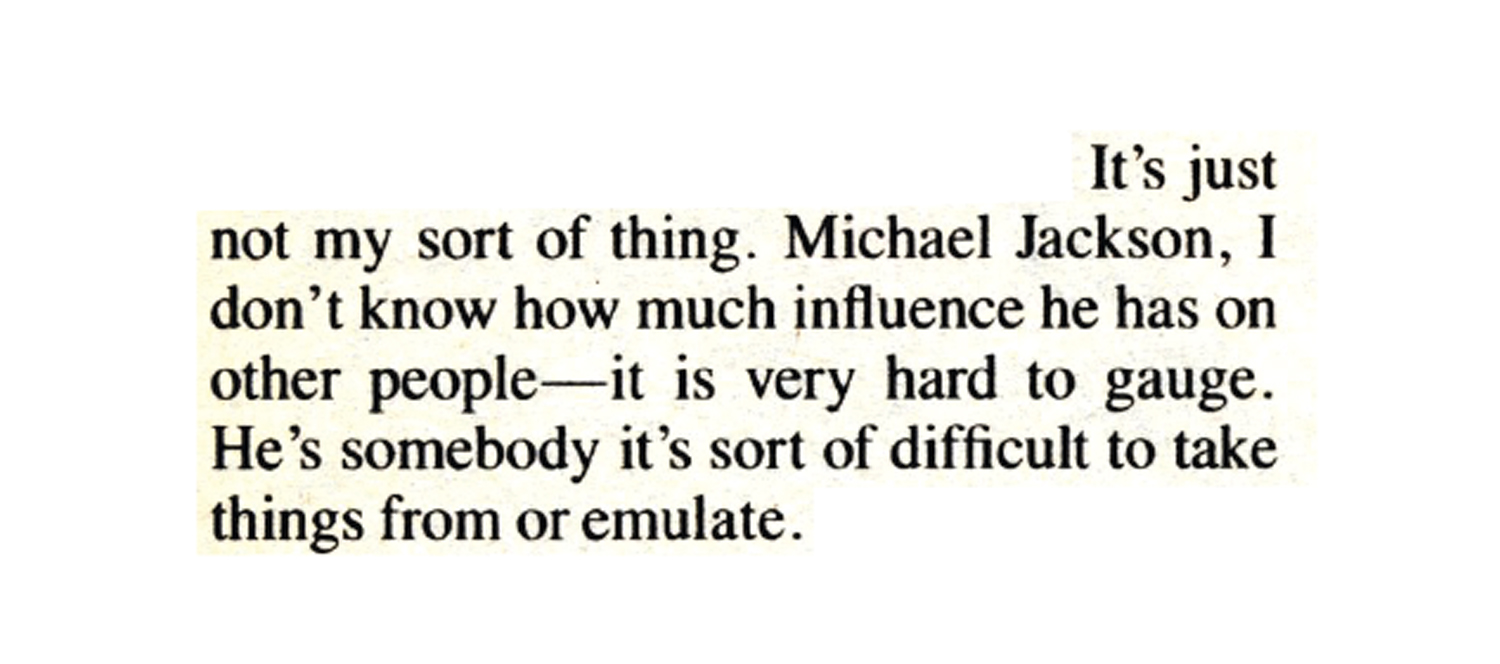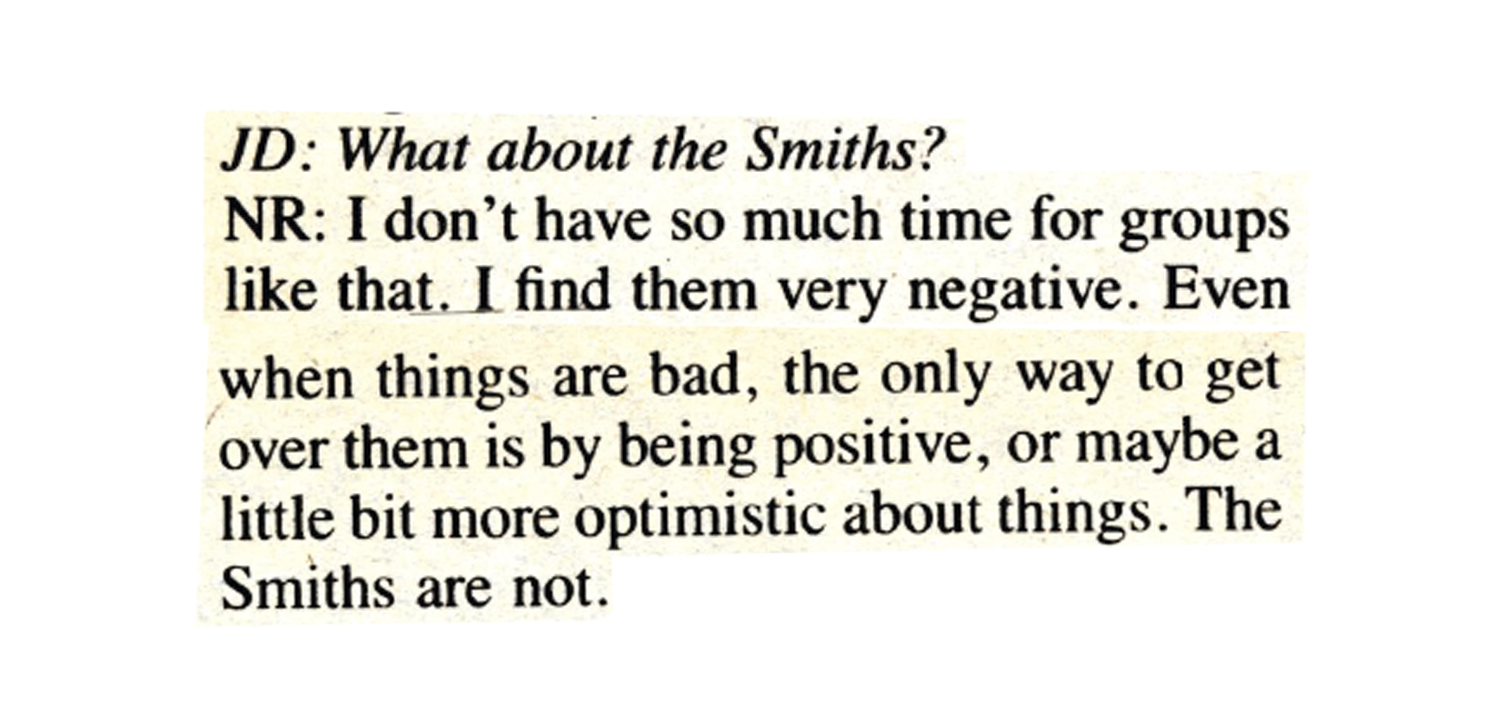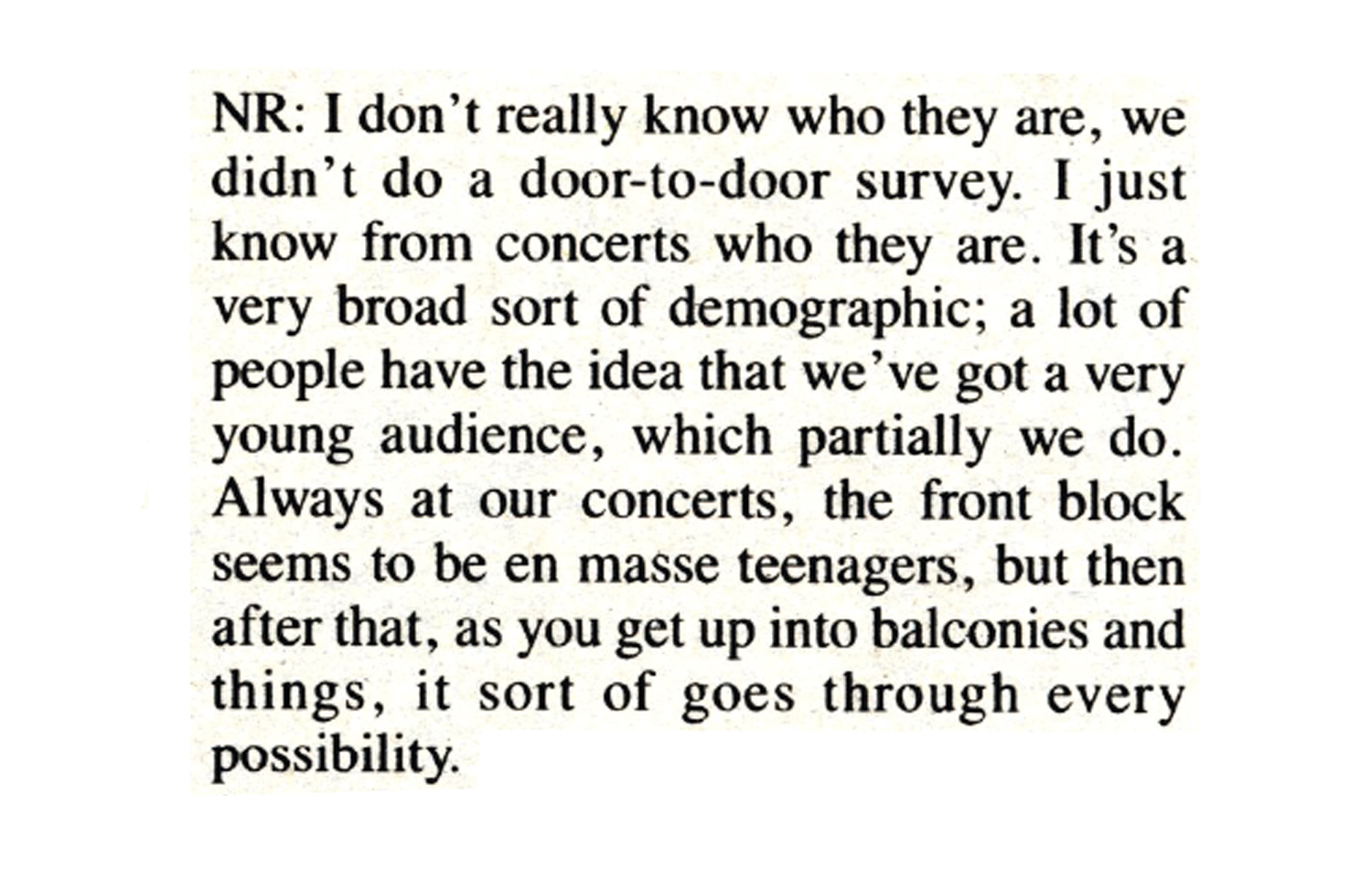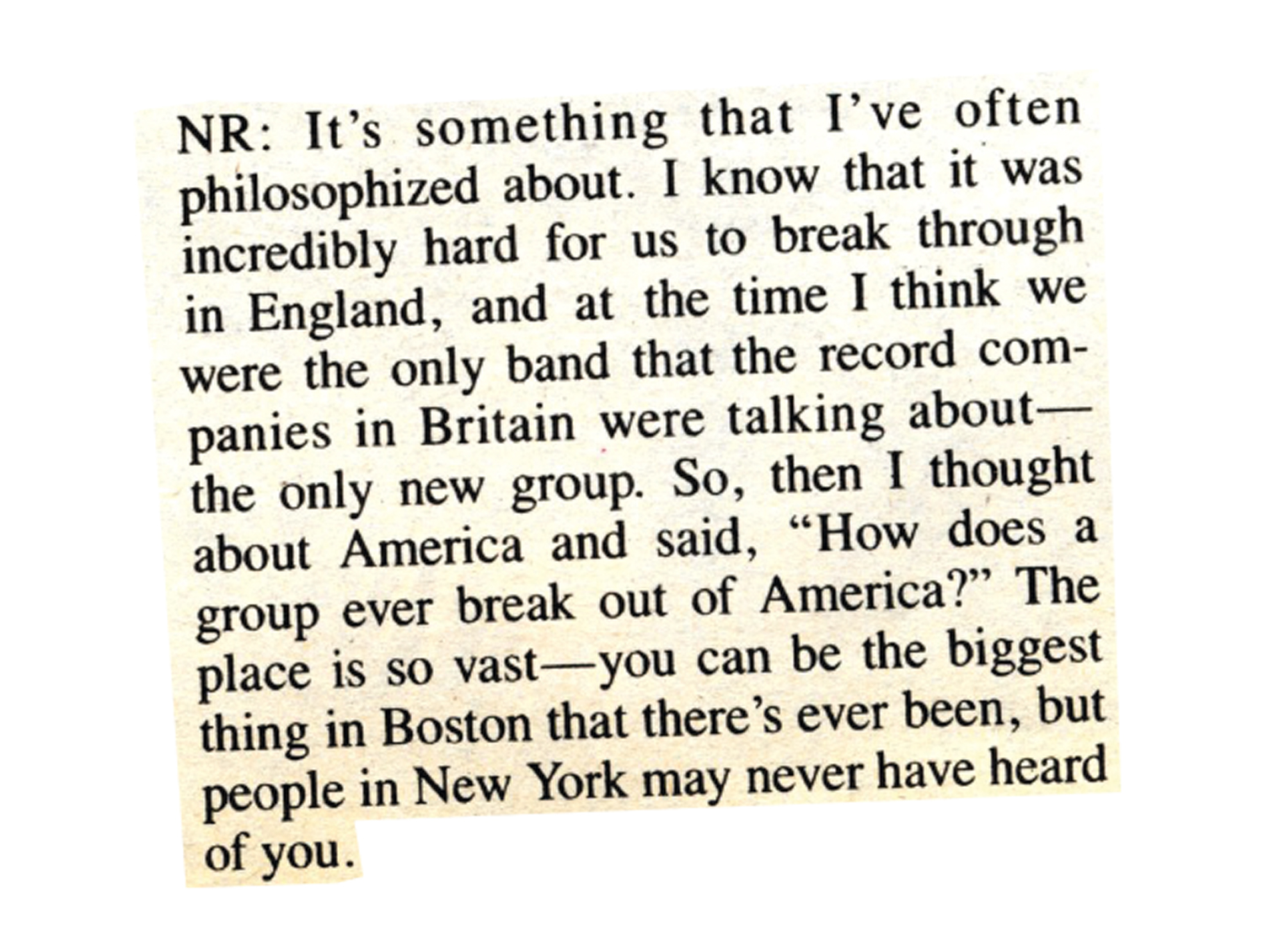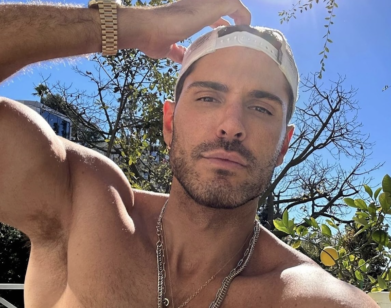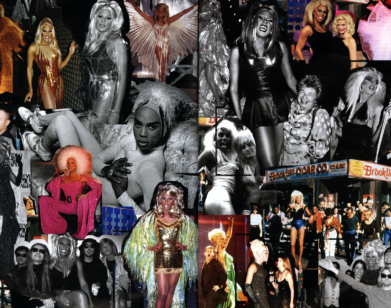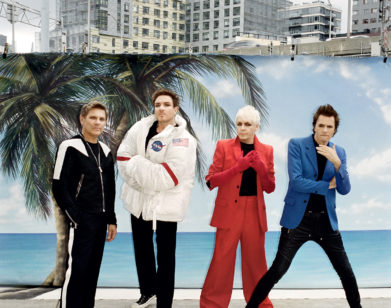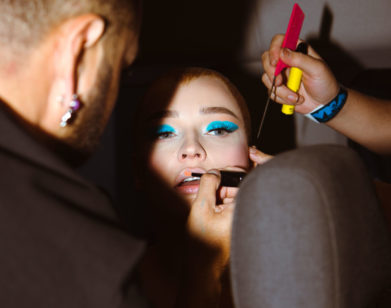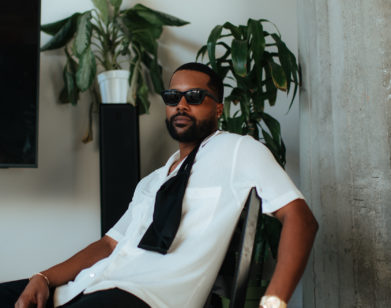on second thought
Nick Rhodes Looks Back on a Life of Reluctant Rock Stardom
When the 59-year-old keyboardist, songwriter, and producer appeared on the cover of this magazine in 1985, his band Duran Duran was everywhere, dominating dance-floors with their pioneering synth-pop, and at the vanguard of the MTV revolution that was sweeping the music world. Here, he revisits (and revises) some of the things he said to John Duka back then.
———
“I certainly never feel that glamour is a mistake. I should rectify that immediately. What I was getting at is that many people, particularly early on in our career, were viewing us as being slightly more superficial because we were interested in fashion, design, and cinema. And so, people, particularly the more male-dominated rock media of that time, didn’t take us as seriously, musically speaking.
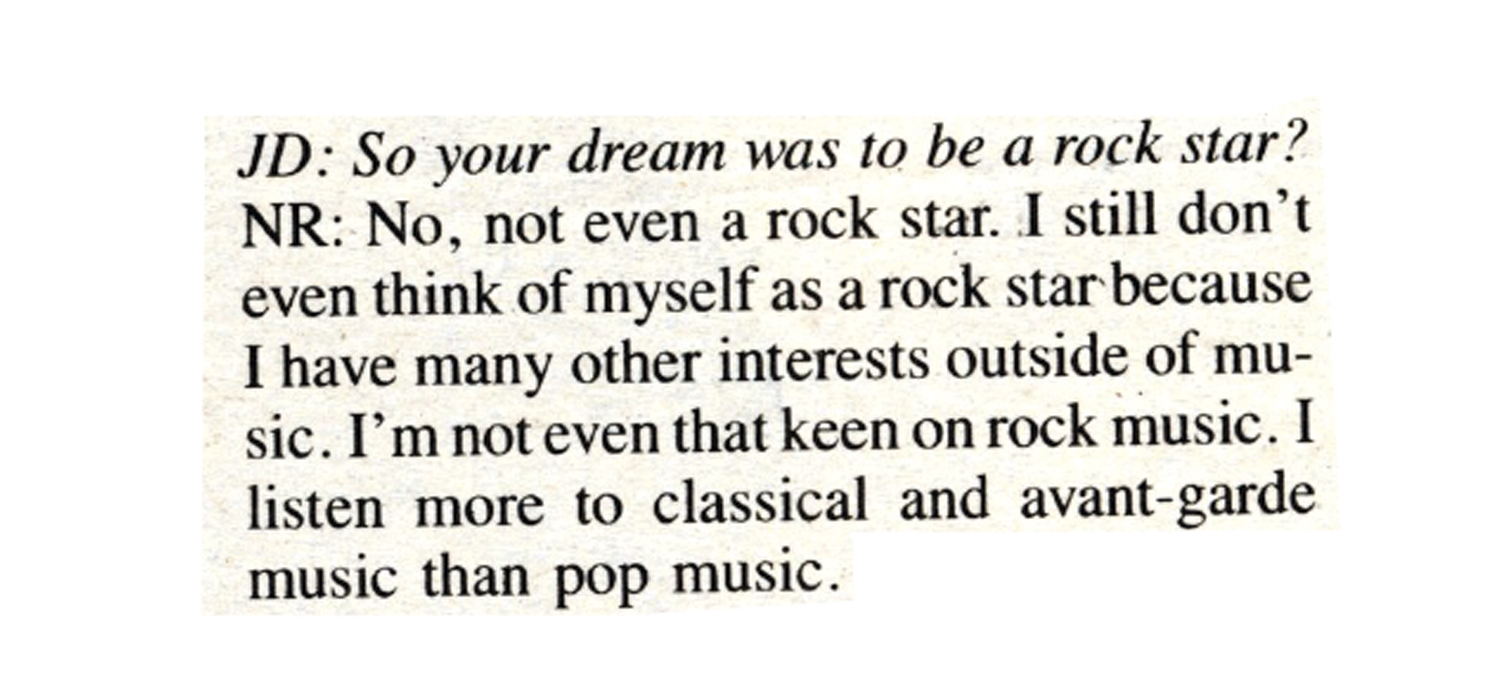
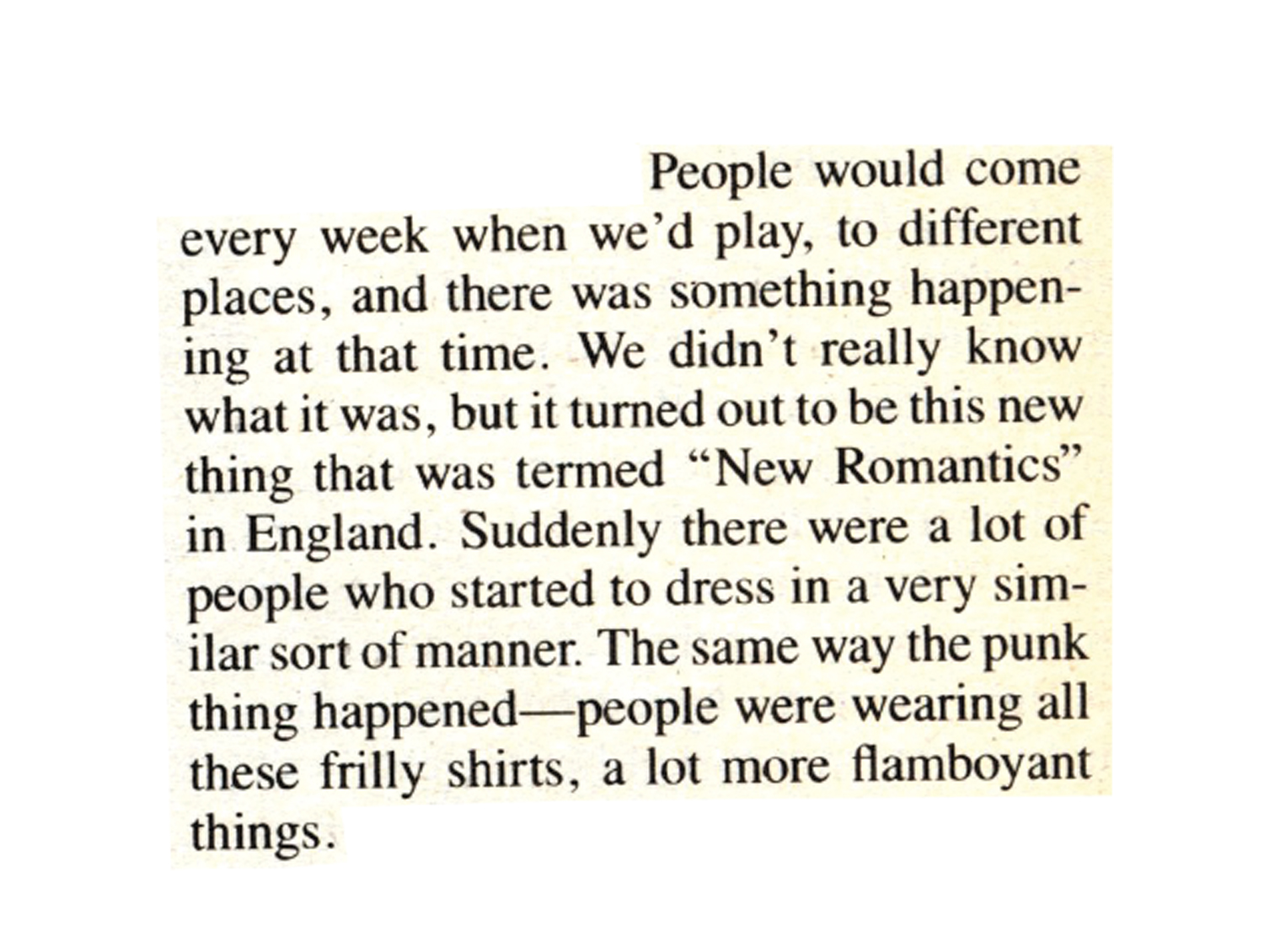
“It was gloriously flamboyant and innocent. It was very young people not being afraid to express themselves in different ways, and to fantasize and enjoy the company of other people who were looking to find their way in the world. In the ’90s, they closed the door on the ’80s and threw away the key. In hindsight, it was rather harsh, be- cause the ’80s brought extraordinary things to the arts.”
———
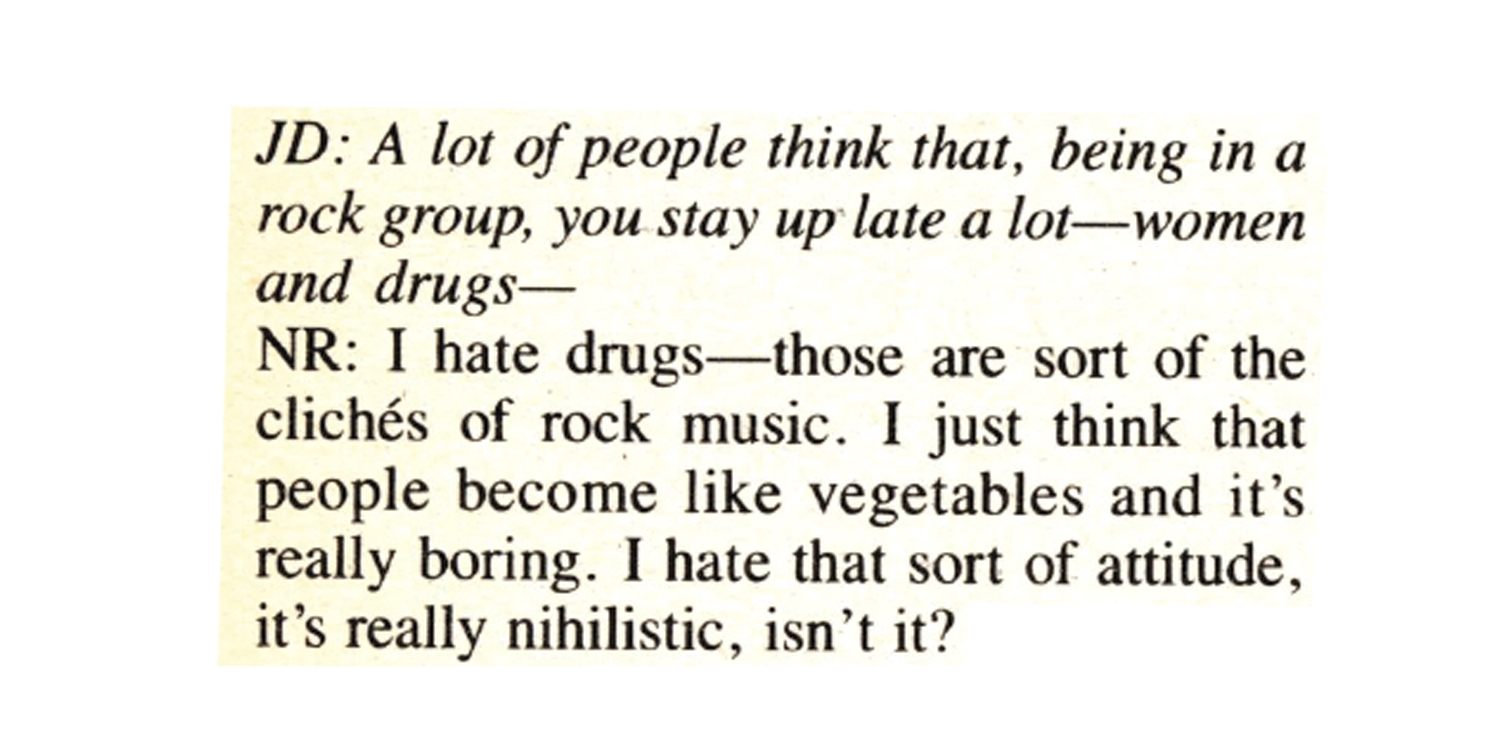
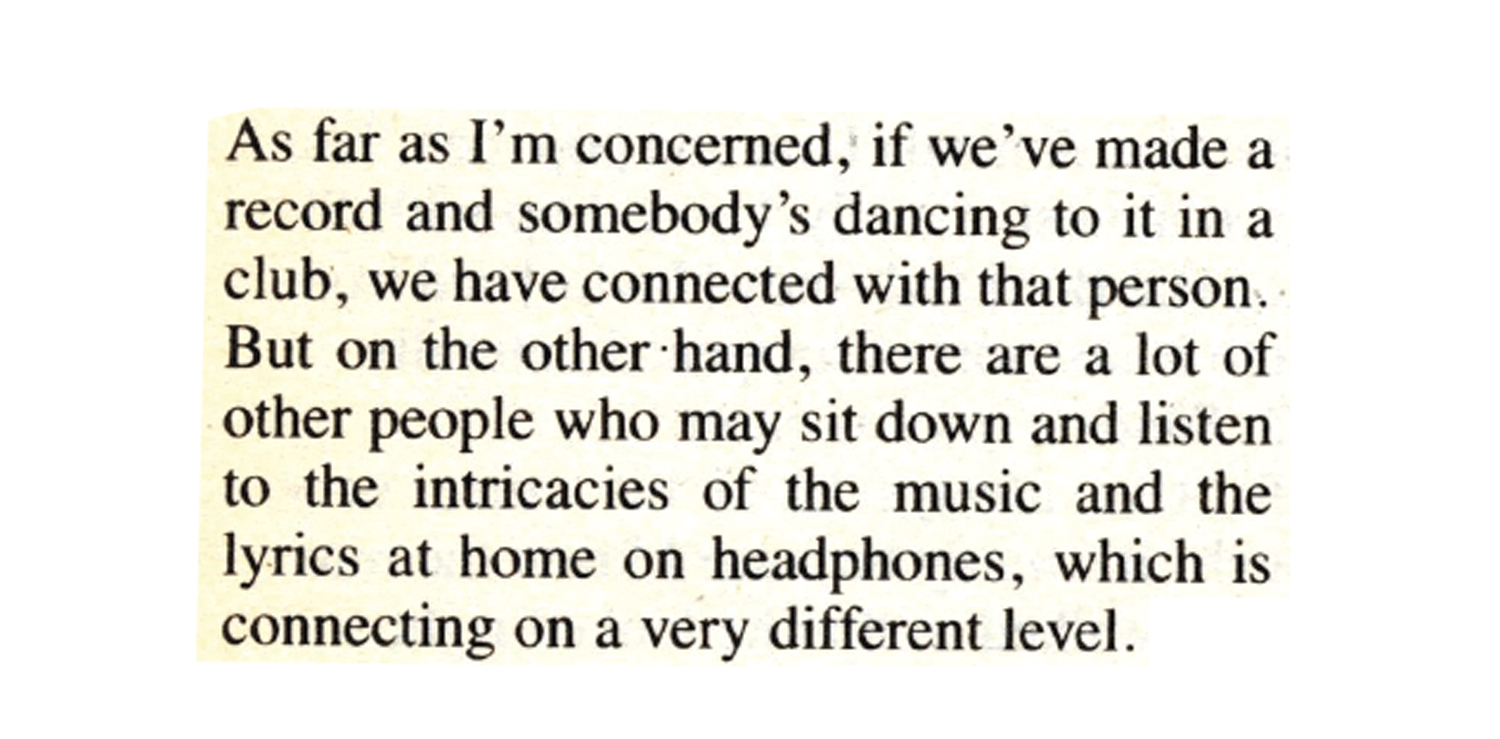
“I certainly listened to The Smiths albums a lot more after that point. Morrissey is a controversial character, but he’s a national treasure. We were often referred to as being the polar opposite to The Smiths, but I don’t see it like that. Lyrically, they were coming from a different place, but I feel ironically that a lot of Morrissey’s references were exactly the same as ours.”
———
“I absolutely, 100 percent stick with that statement.”
———
“Many people have stuck with us, but we’ve also picked up several different generations along the way. Now, with the way that people listen to music with streaming services and YouTube, I think it’s become much more mixed, because a 16-year-old kid, instead of only liking the things that are new, might have on their playlists some Duran Duran and some Prince and some hip-hop. It’s a much wider palette.”
———
“The internet has given artists a global platform, but that doesn’t make being heard easy. The internet is populated with an infinite amount of people whose voices want to be heard. Of course, some things rise up. Billie Eilish is a great example. But for every Billie Eilish, there are half-a-million others who couldn’t find their way through. It’s difficult being an artist now. Record labels tend to not take on young talent and develop them over a series of albums. Instead, they’re looking at reality TV and see- ing if they can snare one of the people who have an instant, built-in audience. That’s a real shame because artists still need to be developed and they need time to find what their real voices are.”
———
Hair: Ayumi Yamamoto using Shu Uemura
Makeup: Allie Smith using Dior at Bridge Artists
Set Design: Cooper Vasquez at Frank Reps
Photo Production: Monika Martinez
Production: Taylor Brown at The Morrison Group
Photography Assistant: Elianel Clinton
Fashion Assistant: Fernando Cerezo and Nicolas Negron

